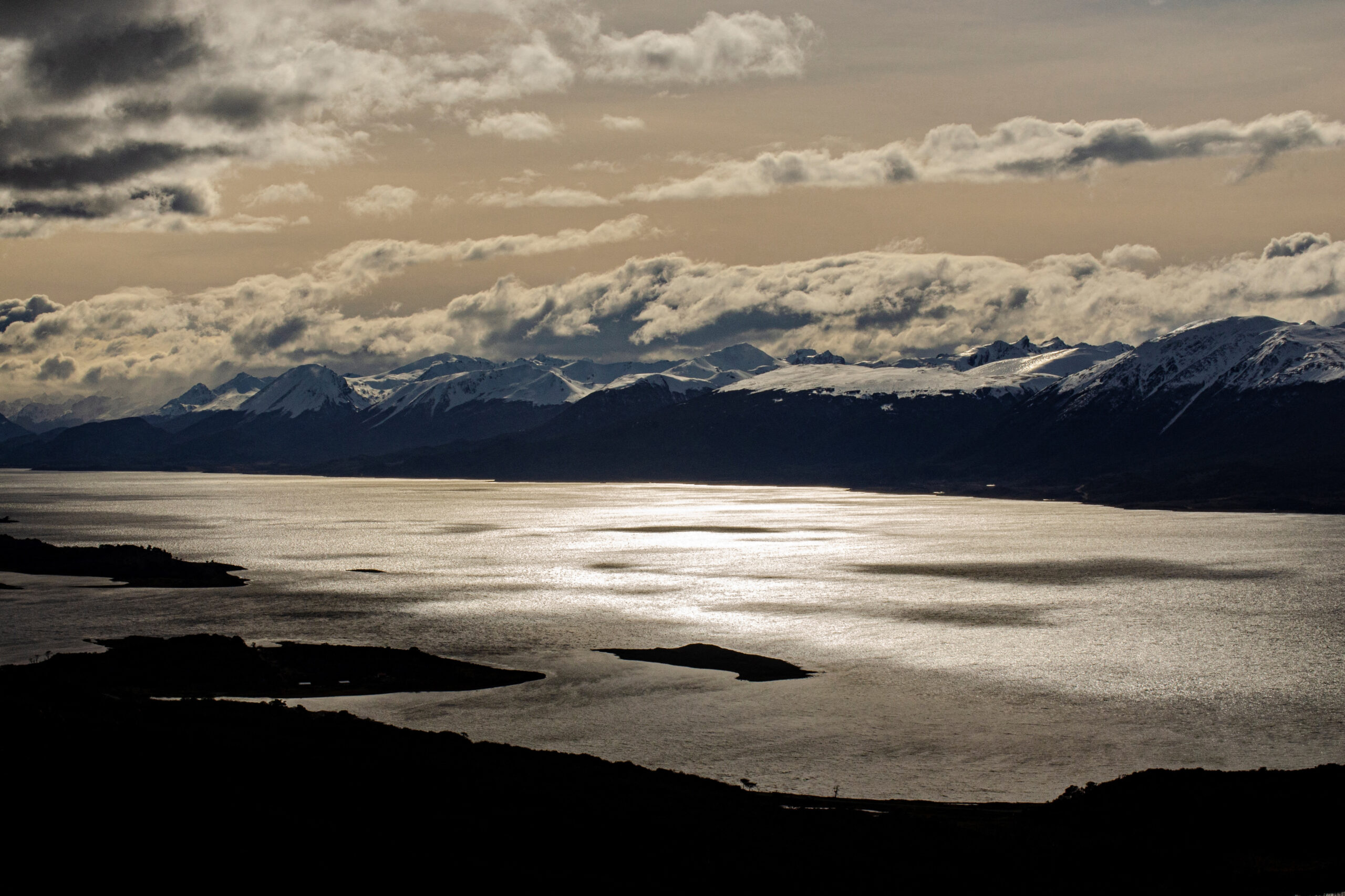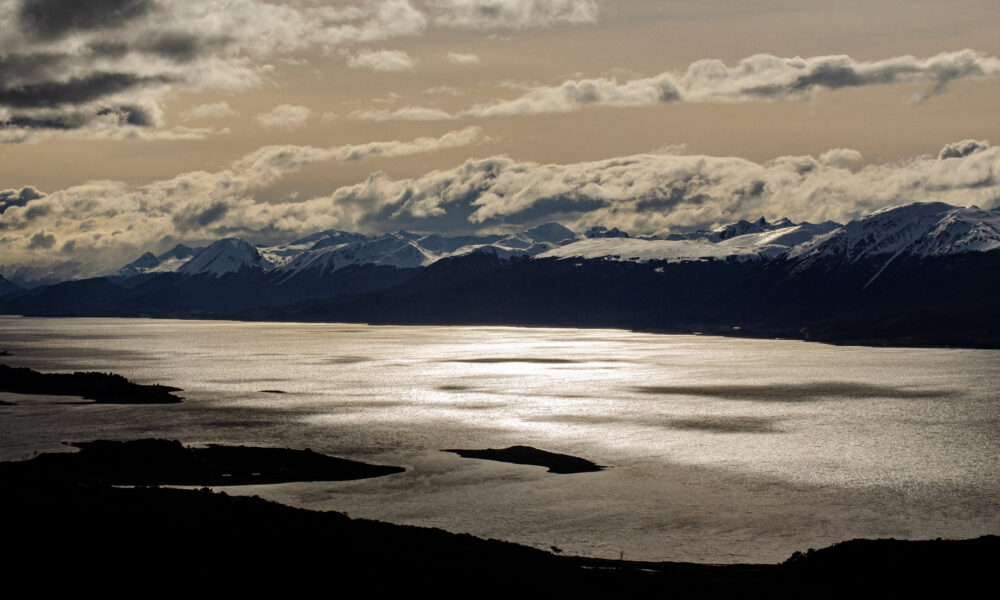International
Chile’s distant paradise where scientists study climate change

AFP | Alberto Peña
Hidden inside pristine forests in Chile’s deep south, known as the end of the world, lie potential early warning signs of climate change. Puerto Williams on Navarino island, which is separated from the South American mainland by the Beagle Channel, is the world’s southern-most town.
Far from the pollution that blights major urban and industrial centers, it is a paradise that provides unique conditions to study global warming.
“There is nowhere else like it,” Ricardo Rozzi, director of the Cape Horn International Center for global change studies and bio-cultural conservation in Puerto Williams, told AFP.
It is “a place that is especially sensitive to climate change” as average temperatures do not rise above five degrees Celsius. This cold and windy area is the last inhabited southern frontier before reaching the Antarctic.
The ethnobotanical Omora park is home to an immense variety of lichens, mosses and fungi that scientists study by crouching down onto their knees with magnifying glasses.
In the crystal clear Robalo river, minuscule organisms act as sentinels of the changes produced by global warming. In both the park and river, the alarm bells are ringing.
Moss and lichen on the move
At this latitude — 55 degrees south — climate change has an exponential effect on flora that react by seeking out low temperatures, said Rozzi, 61. “The most obvious aspect of climate change is the rising temperatures,” he said. “These lichens cannot survive” if a certain threshold is passed. To escape the higher temperatures, they move.
“In the case of (mosses) we’ve noticed that they have moved. Before they were between 50 and 350 (meters above sea level) and now they are between 100 and 400,” said Rozzi. He says Omora has more diversity per square meter of lichens and mosses than anywhere else in the world. They also help to absorb carbon dioxide.
Another aspect is the elevational diversity gradient, an ecological pattern in which biodiversity changes with elevation.
The 700-meter high Bandera hill’s biodiversity changes every 200 meters and there is a mammoth 1.5 degrees Celsius difference in temperature between top and bottom.
“We can see what changes happen in the high mountains and in the area close to the sea in a very short distance, and we can see how the temperature affects the biodiversity that lives in this river,” Tamara Contador, 38, a biologist at the Cape Horn International Center, told AFP.
She studies the gradients themselves. If the height difference between gradients rises or falls on the mountain, scientists can determine whether there has been a global change in temperature. They say there has been.
Avoiding ‘extermination’
“On a global level, the polar and subpolar ecosystems are the most affected by climate change, so we are in a place where climate change has a much bigger effect on biodiversity than other places,” said Contador.
River organisms also form part of the alert system.
“The organisms that live here are also indicators of water quality and global environmental change,” added Contador.
River organisms move about and have already increased their reproductive cycle, says Rozzi. This confirms there has been a small change to the climate in the area that could have been much greater elsewhere on the planet.
“Some insects that have an annual eggs to larvae to adulthood cycle are now having two cycles because the temperature has risen,” said Rozzi.
By studying these organisms and learning from them “we can avoid crossing the threshold that brings us to the extermination of humanity and other life forms,” he added.
International
Iran Reports 201 Dead, 747 Injured After U.S. and Israeli Strikes

The Iranian Red Crescent Society reported Sunday night (local time) that at least 201 people were killed and 747 injured following attacks carried out by Israel and the United States against the Islamic Republic.
A spokesperson for the humanitarian organization said more than 220 rescue teams have been deployed across affected areas and that relief operations are continuing without interruption. The official highlighted the difficulty of treating the large number of wounded and the urgent need for additional resources in impacted provinces.
Out of Iran’s 31 provinces, 24 have reported damage, according to a statement carried by the Isna news agency. This marks the first overall casualty toll released by Iranian state-affiliated media since the launch of the offensive.
Among the dead are 85 schoolgirls from a school in the southern city of Minab, according to the country’s judiciary. “The number of martyrs at the Minab girls’ school has risen to 85,” the local prosecutor’s office said, as quoted by the judiciary’s website, Mizan Online.
Iranian President Masud Pezeshkian described the attack as a “savagery” that “constitutes a new black page in the record of countless crimes committed by the aggressors.”
Meanwhile, the international community continues to monitor the situation closely amid concerns about possible further reprisals and the broader impact on Middle East stability, energy markets, and global security.
AFP noted that it was unable to independently verify the casualty figures or the circumstances surrounding the events.
International
Pope Leo XIV Urges End to ‘Spiral of Violence’ in Middle East

Pope Leo XIV on Sunday called for an end to the “spiral of violence” in the Middle East, following military strikes by the United States and Israel against Iran and subsequent retaliatory bombardments in the region.
“Faced with the possibility of a tragedy of enormous proportions, I urge the parties involved to assume their moral responsibility and stop the spiral of violence before it becomes an irreparable abyss,” the pontiff told the crowd gathered in St. Peter’s Square at the Vatican.
Speaking during the Angelus prayer, the U.S.-born pope said stability and peace cannot be achieved through threats or weapons. “Stability and peace are not built with reciprocal threats or with arms that sow destruction, suffering and death, but only through reasonable, sincere and responsible dialogue,” he declared.
The leader of the world’s 1.4 billion Catholics also called for diplomacy to “regain its role” amid escalating tensions.
In addition, the pope urged Afghanistan and Pakistan to urgently resume dialogue after several days of clashes between the two countries.
International
Security Council to Hold Emergency Meeting on Middle East Crisis

UN Secretary-General António Guterres on Saturday condemned the “military escalation in the Middle East” following attacks by the United States and Israel against Iran and Tehran’s retaliatory strikes, just hours before an urgent meeting of the UN Security Council.
“I call for the immediate cessation of hostilities and de-escalation,” Guterres said in a statement.
The Security Council is scheduled to meet on Saturday at 21:00 GMT (4:00 p.m. in New York) to address “the situation in the Middle East,” the United Nations announced.
The meeting, during which Guterres will deliver remarks, was convened at the request of France, Bahrain, Colombia, Russia and China, according to a diplomatic source.
-

 International4 days ago
International4 days agoFamily of “El Mencho” Seeks Return of Body After Deadly Military Operation
-

 International4 days ago
International4 days agoLarry Summers Steps Down from Harvard Role Amid Epstein Controversy
-

 International4 days ago
International4 days agoIran’s President Optimistic Ahead of Geneva Nuclear Talks with U.S.
-

 International4 days ago
International4 days agoBill Gates Admits “Serious Mistake” Over Epstein Ties
-

 International4 days ago
International4 days agoStephen Hawking Photo Appears in Newly Released Epstein Documents
-

 International3 days ago
International3 days agoCocaine Production Surges 34% in 2023 as Market Expands into Africa and Asia
-

 International3 days ago
International3 days agoFederal Judge Blocks Trump Policy Allowing Deportations to Third Countries
-

 International2 days ago
International2 days agoArgentina’s Senate Reviews Milei-Backed Labor Overhaul
-

 International2 days ago
International2 days agoTrump Floats “Friendly Takeover” of Cuba Amid Rising Tensions
-

 International3 days ago
International3 days agoClinton Accuses Republican Committee of Using Epstein Case to Shield Trump
-

 International1 day ago
International1 day agoSecurity Council to Hold Emergency Meeting on Middle East Crisis
-

 Sin categoría1 day ago
Sin categoría1 day agoTrump: ‘We Think It’s True’ Amid Claims Iran’s Supreme Leader Was Killed
-

 International6 hours ago
International6 hours agoIran Reports 201 Dead, 747 Injured After U.S. and Israeli Strikes
-

 International6 hours ago
International6 hours agoPope Leo XIV Urges End to ‘Spiral of Violence’ in Middle East






























